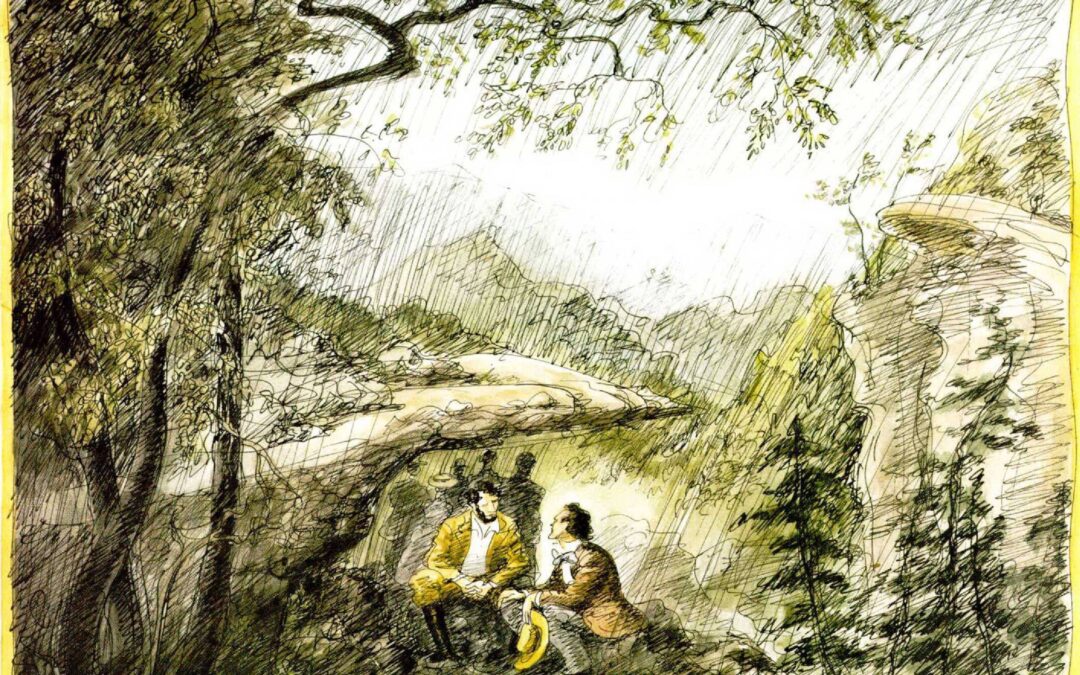 When Melville and Hathorne picnicked on Mount Mansfield in August 1852, Piper Heidsieck corks were popped. That’s what Cornelius Mathews wrote The Literary World during their climb to the summit. Until this meeting, the two authors were unacquainted though they...
When Melville and Hathorne picnicked on Mount Mansfield in August 1852, Piper Heidsieck corks were popped. That’s what Cornelius Mathews wrote The Literary World during their climb to the summit. Until this meeting, the two authors were unacquainted though they...
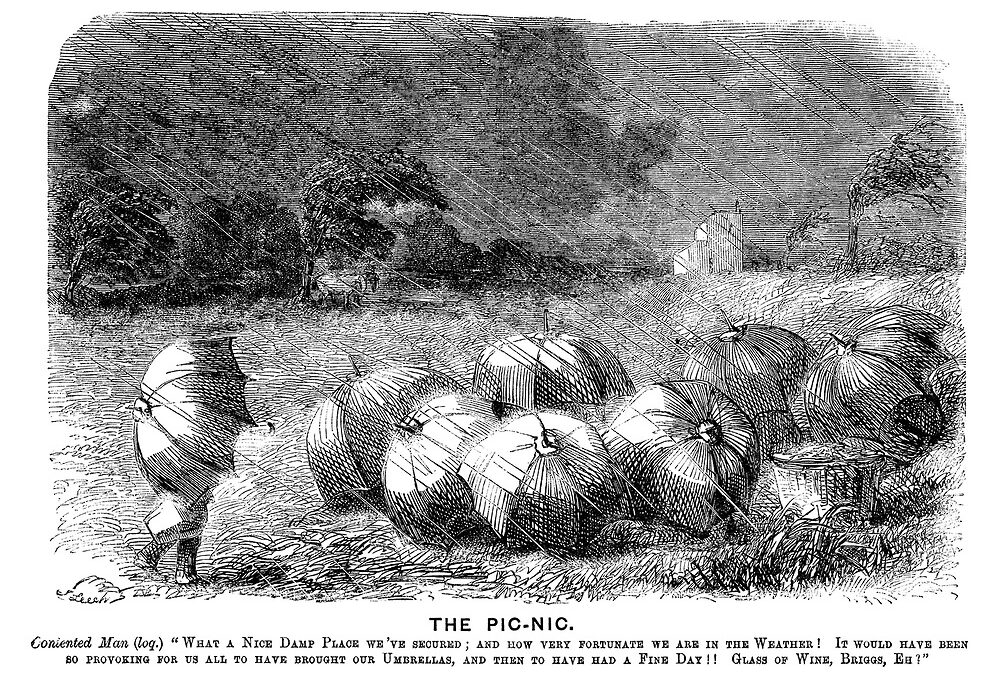 For whom a rainy day will not stop the picnic, Stoic Brits are the butt of Leech’s satiric humor. Visually, you see a group of umbrellas in an open field lashed by rain. The legend is, “What a nice damp place we have secured; and how very fortunate we are...
For whom a rainy day will not stop the picnic, Stoic Brits are the butt of Leech’s satiric humor. Visually, you see a group of umbrellas in an open field lashed by rain. The legend is, “What a nice damp place we have secured; and how very fortunate we are...
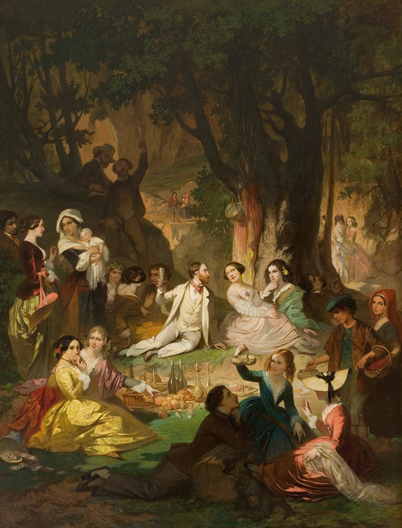 It’s unclear why Glaize selected a goûter champêtre or picnic for a portrait of his patron Alfred Bruyas. Perhaps Glaize meant to highlight Bruyas, dressed white, in a theatrical social setting as a man among many women. He spotlights his patron in the center,...
It’s unclear why Glaize selected a goûter champêtre or picnic for a portrait of his patron Alfred Bruyas. Perhaps Glaize meant to highlight Bruyas, dressed white, in a theatrical social setting as a man among many women. He spotlights his patron in the center,...
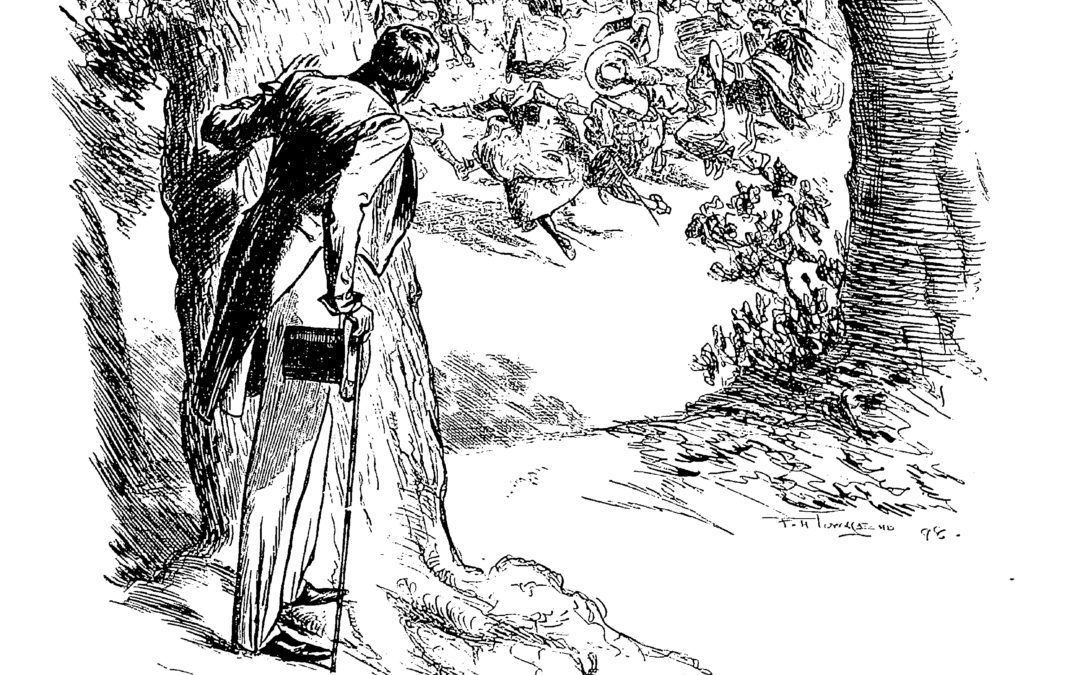 Hawthorne’s memories of Brook Farm were a childish and boisterous masquerade picnic party for a six-year-old boy. Hawthorne refused to participate and “lay under the trees and looked on.” A decade later, Hawthorne refashioned this party an unpleasant...
Hawthorne’s memories of Brook Farm were a childish and boisterous masquerade picnic party for a six-year-old boy. Hawthorne refused to participate and “lay under the trees and looked on.” A decade later, Hawthorne refashioned this party an unpleasant...
 The painting was exhibited in 1853 with the title Le repos des Moissonneurs, aka Harvesters Resting. Millet’s harvesters are Nooning, and this is a stop for lunch and not a picnic. Though the harvesters are portrayed as contemporary agricultural workers, the subtext...
The painting was exhibited in 1853 with the title Le repos des Moissonneurs, aka Harvesters Resting. Millet’s harvesters are Nooning, and this is a stop for lunch and not a picnic. Though the harvesters are portrayed as contemporary agricultural workers, the subtext...
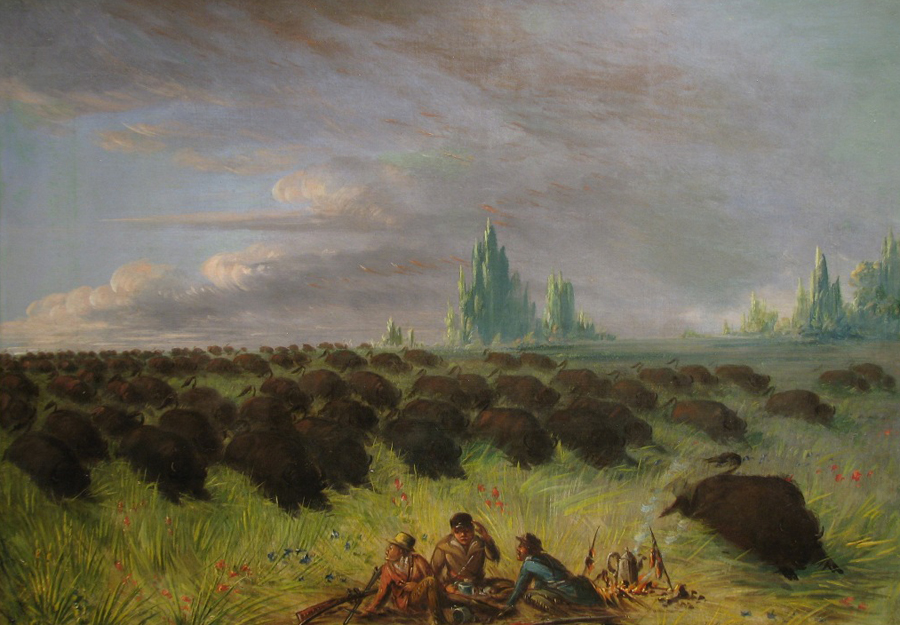 When Charles Dickens visited the Looking Glass Prairie in 1842, it reminded him of a Catlin exhibition in London. “The sun was going down, very red and bright,” Dickens writes, “and the prospect looked like that ruddy sketch of Catlin’s, which...
Thompson’s painting has often been retitled. It has been Pic Nick, A Pic Nick, Camden, Maine], and is currently A Pic Nick in the Woods of New England. The menu included ham [with cloves], roast chicken, clams, potatoes or baked beans? [in a dish], bread, wine,...
When Charles Dickens visited the Looking Glass Prairie in 1842, it reminded him of a Catlin exhibition in London. “The sun was going down, very red and bright,” Dickens writes, “and the prospect looked like that ruddy sketch of Catlin’s, which...
Thompson’s painting has often been retitled. It has been Pic Nick, A Pic Nick, Camden, Maine], and is currently A Pic Nick in the Woods of New England. The menu included ham [with cloves], roast chicken, clams, potatoes or baked beans? [in a dish], bread, wine,...
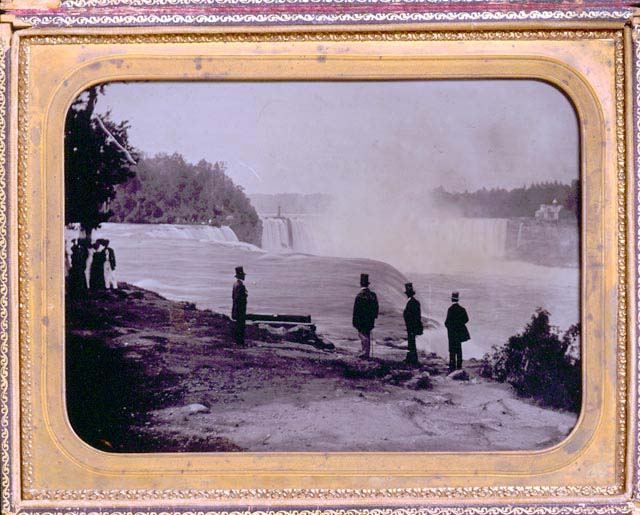 In An Englishwoman in America (1856), Bird finds the view of Niagara Falls marred by picnic detritus. On first impression, Bird was astonished at the falls and the mist’s power and the roar. But a closer look revealed that the falls are “disfigured,” for “Not...
In An Englishwoman in America (1856), Bird finds the view of Niagara Falls marred by picnic detritus. On first impression, Bird was astonished at the falls and the mist’s power and the roar. But a closer look revealed that the falls are “disfigured,” for “Not...
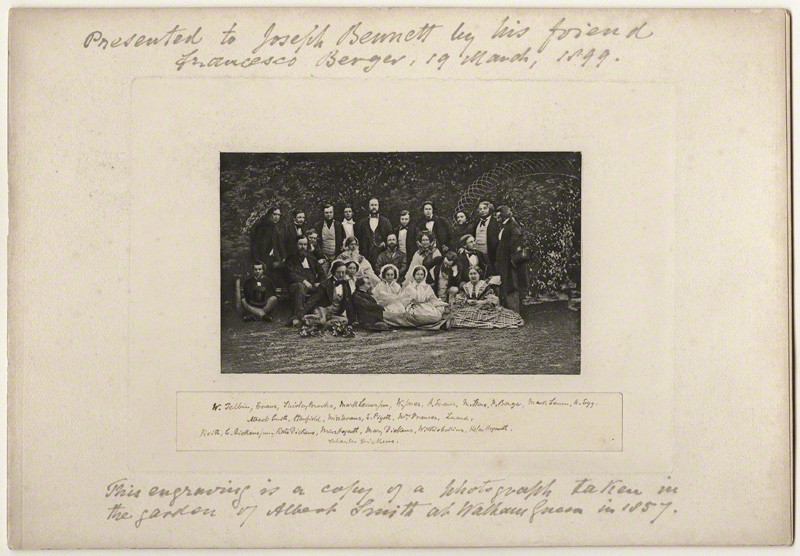 Frederic Ouvry’s invitation to a July garden party at his home in Fulham Green, London, insinuates that guests would gather with two celebrities: Albert Smith, the famous lecturer of “The Glaciers of Mont Blanc,” and Charles Dickens. The latter was...
Frederic Ouvry’s invitation to a July garden party at his home in Fulham Green, London, insinuates that guests would gather with two celebrities: Albert Smith, the famous lecturer of “The Glaciers of Mont Blanc,” and Charles Dickens. The latter was...
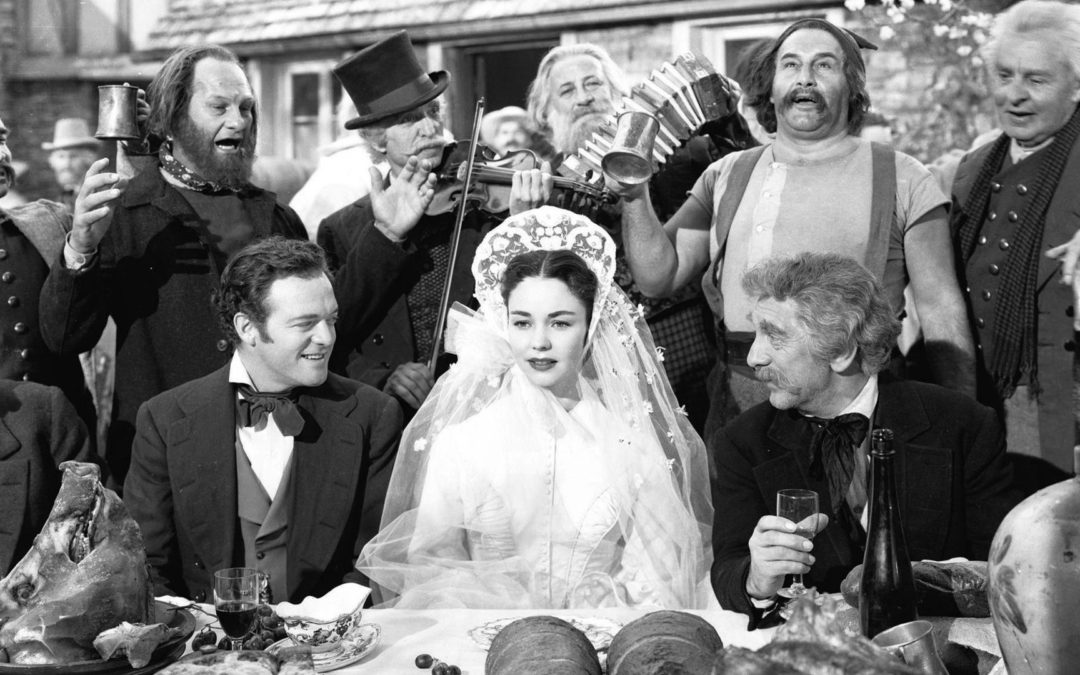 Flaubert’s Madame Bovary is attack on the French bourgeoisie’s crudities and lack of taste. A pivotal moment occurs at Emma Rouault’s wedding party, a vaguely picnicky outdoor event. The party foreshadows Emma’s disastrous relationship with...
Flaubert’s Madame Bovary is attack on the French bourgeoisie’s crudities and lack of taste. A pivotal moment occurs at Emma Rouault’s wedding party, a vaguely picnicky outdoor event. The party foreshadows Emma’s disastrous relationship with...










